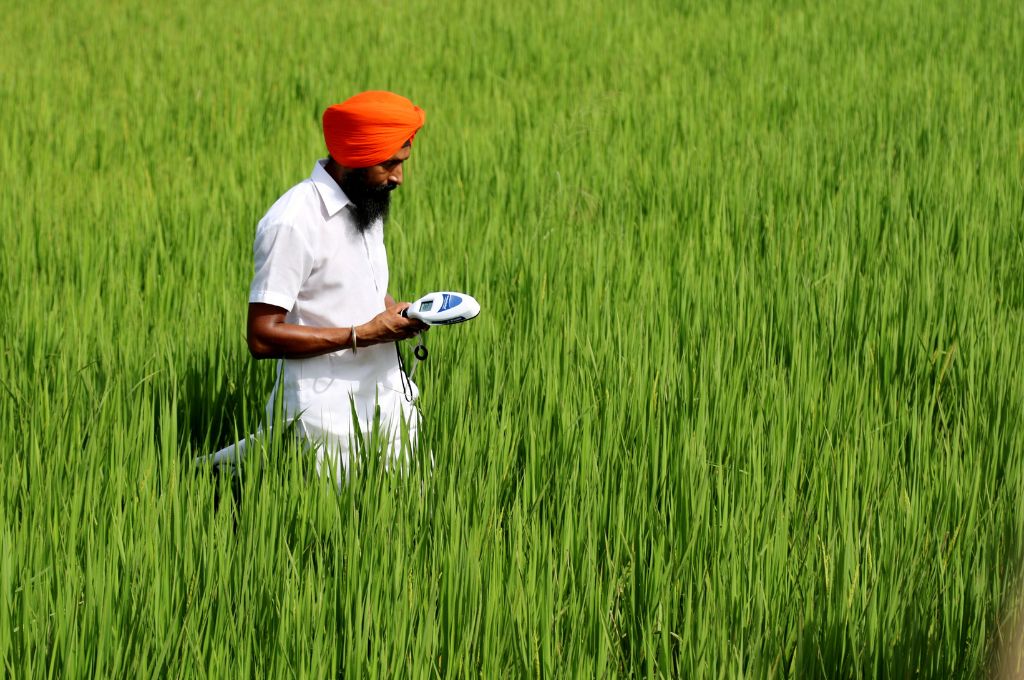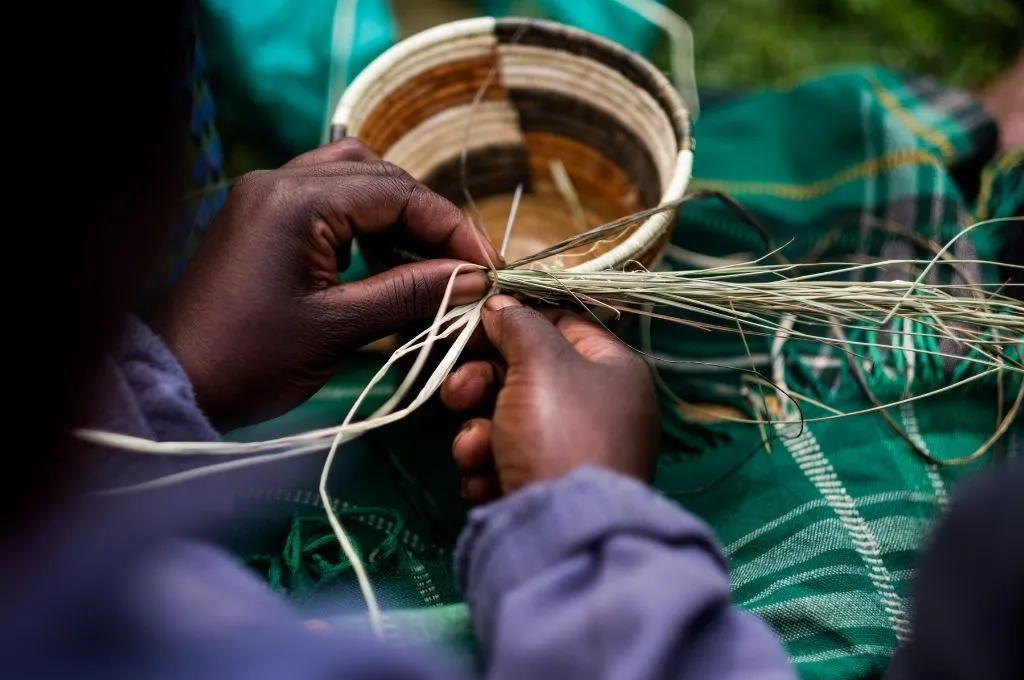An increase in erratic and extreme weather events is significantly impacting India’s agricultural sector, affecting both farmer livelihoods and crop yields. Paradoxically, the agricultural industry is one of the largest contributors of greenhouse gas (GHG) emissions in the country. According to a report by the International Maize and Wheat Improvement Centre, India has the potential to cut down 18 percent of its annual GHG emissions from agriculture and livestock.
While it is important to focus on measures to reduce GHG emissions from the sector, it is equally critical to ensure that farmer livelihoods and agricultural productivity don’t get impacted. In light of this, there has been a growing focus on the practice of regenerative agriculture. This shift aims to encourage more sustainable farming methods among farmers without imposing undue financial burdens on them. Regenerative agriculture places emphasis on restoring soil health in order to decrease GHG emissions. It involves minimising soil disturbance through practices such as reduced tillage or no-till farming, fostering biodiversity through cover cropping and crop rotation, and integrating trees or shrubs into agricultural landscapes through agroforestry.
However, in order to make tangible progress in this fight, reliable and accessible data is crucial for organisations that work in close conjunction with such small and economically disadvantaged farmers. These include nonprofits, research institutions, and governmental agencies working on sustainable farming practices, rural development, and improving the livelihoods of small-scale farmers. Such organisations need access to granular data, updated in real time, in order to facilitate research and formulate a strategic implementation plan for each farm. This involves the collection of essential information, including details on farmers, average landholdings, water resource availability, saplings planted, and the survival rates of these plants.
But technology is expensive. Small nonprofits that work with farmers at the grassroots often find it difficult to spend on hardware, software, and data collection tools. Their inability to adopt innovation not only affects their efficacy to implement programmes on ground but also makes their organisational functioning time-consuming. So how can technology be made more accessible and how can its benefits be extended to a wide array of nonprofits working on these issues?
The promise of free and open-source software
One answer may lie in utilising free and open-source software (FOSS) that is already available in the market. FOSS allows users to access, modify, and share data easily. It is affordable and highly customisable, also allowing for collaboration between different stakeholders. In stark contrast, proprietary or vendor systems often lack transparency on how the system operates and their pricing structures can be exorbitant, with additional charges for every new feature or product recommendation.
At Tech4Good Community (T4GC), we have been actively advancing the potential of FOSS with several nonprofits that may be constrained by resources and the capacity to incorporate technology into their operations. Agro Rangers (AR)—a grassroots nonprofit organisation working on adoption of regenerative agricultural practices with farmers in Pune, Maharashtra—is one of our partners. They work with agricultural communities on ground, focusing on creating agroforestry interventions, improving soil quality, and transitioning from chemical to organic farming practices. This requires meticulous collection of data, including information on soil composition, carbon levels, and climatic conditions encompassing temperature, water availability, and humidity of each farm in each location. Additionally, there is a need to track organisational data including employee leave and expenses.
Here we share learnings from our work with AR and how FOSS helped make the process of data collection easier for its teams.

1. Enabled smarter data collection
In the case of AR, a field manager oversees the operations of 150 farmers. The current implementation covers 50 farmers, with plans for expansion. As new farmers are brought into the system, specific data is gathered during the distribution of saplings based on individual preferences. For instance, some farmers may request a combination of fruit saplings like mango and lemon, while others prefer alternative varieties such as jamun and custard apple. The field manager ensures precise sapling distribution and simultaneously records essential details. This data, including instances of surplus saplings that require later retrieval, forms a secondary layer of information guiding future distribution strategies. Throughout the year, the team diligently monitors sapling survival rates, offering comprehensive insights into inventory management and the overall effectiveness of their agricultural initiatives.
However, manually collecting and organising this data was proving to be a labour-intensive exercise, with the added complexity of managing multiple forms concurrently. When AR was using Google Forms, which at times was the case, they couldn’t progress to collect data from the next farmer until the previous one had submitted their form.
The introduction to KoboToolbox streamlined AR’s laborious data collection process. Kobo is a FOSS technology that collects, analyses, and manages data for surveys, monitoring, evaluation, and research. It allowed AR to customise its data collection forms to include a variety of question types. Once the forms were designed, they were deployed to mobile devices through the KoboCollect app, facilitating offline data collection where an internet connection is unavailable.
The system aids in tracking sapling distribution, identifying inventory needs, and streamlining the planting process.
Kobo also allowed AR to pause the data entry for one farmer and seamlessly move on to the next person, eliminating the waiting period for form submission, which ranged anywhere from five hours to two days. There were many other advantages too. The software not only streamlined data collection but also facilitated user identification, ensuring that each farmer’s progress and unique needs could be effectively monitored and addressed. The software also helped capture data related to labour deployed on each farm, which was previously documented in cumbersome registers. This meant that AR now had access to extensive data on the gender ratio of employment in every small landholding, as modest as one acre.
The collected data can be securely stored on the KoboToolbox server, organised and managed through the web interface, which provides features for data analysis and visualisation. This now enables AR to monitor progress, allocate resources efficiently, and adjust strategies based on real-time data. For instance, the system aids in tracking sapling distribution, identifying inventory needs, and streamlining the planting process. This capability allows for prompt adjustments and informed decision-making in the face of climatic variations, enhancing the overall effectiveness of climate-focused initiatives.
2. Streamlined internal data management
For internal operations, AR relied heavily on manual processes. Donor records, volunteer management, and team leave dates were all managed on Excel. This meant that for the founder of the organisation, with a small team and no dedicated staff, the sheer volume of data and the responsibility of keeping track of reporting structures and finances became incredibly time-consuming. This diverted focus from programmatic work, highlighting a significant organisational challenge. The absence of dedicated personnel and sophisticated software further compounded the need for a more productive system.
Once implemented, ERP systems act as centralised databases, consolidating data from different departments into a unified platform.
The introduction of an enterprise resource planning (ERP) system helped substantially streamline these operations. ERP refers to a type of software that organisations use to manage day-to-day business activities such as accounting, procurement, project management, risk management and compliance, and supply chain operations. A complete ERP suite also includes enterprise performance management, a software that helps plan, budget, predict, and report on an organisation’s financial results. Once implemented, ERP systems act as centralised databases, consolidating data from different departments into a unified platform. This integration facilitates real-time communication and collaboration across various business functions.
For AR, ERP has enabled real-time tracking of team members’ in-and-out times, leave, and salaries. It has also helped in managing volunteers. Additionally, this integration has assisted AR in donor management; utilisation of funds can now be tracked in detail, highlighting the areas where expenses were incurred. Features such as automated reminders for pending installments, generation of 80G receipts, and handling of income-tax-related forms like the 10B form have also been incorporated.
3. Made data shareable and easy to understand
To enable easier analysis of all the data collected through KoboToolbox, Metabase was integrated into AR’s processes. Metabase is an open-source business intelligence tool that enables organisations to study data from a variety of destinations and sources, lets them ask questions about their data, and displays answers in user-friendly formats such as bar charts or a detailed table.
This integration empowers AR employees, regardless of technical expertise, to shift their focus from sorting through disparate data formats to concentrating on operational tasks. With Metabase, AR can make informed decisions. For instance, it now has the potential to facilitate the analysis of various farming models to identify successful approaches as well as those in need of modifications. Furthermore, it can provide the team with valuable insights into the types of saplings favoured by farmers, enabling them to tailor their initiatives to better align with farmer choices and needs. Metabase also allows AR to track the impact their projects had and clearly communicate their results to donors, customers, and corporate and foundation partners, as well as to new partners.
With regenerative agriculture emerging as a crucial lever in addressing climate challenges, it becomes imperative for grassroots nonprofits working in this domain to leverage technology that suits their unique needs. The cost-effectiveness of FOSS is a compelling reason for nonprofits to explore and adopt these solutions, ensuring they maximise their impact while minimising financial burden. However, several challenges remain. Beyond technical and financial constraints, some organisations may be hesitant to depart from traditional manual processes and proprietary software. Data privacy and security concerns are also relevant for nonprofits that handle sensitive information, and these must be taken into consideration. Nevertheless, the escalating challenges posed by the climate crisis underscore the importance for data-driven climate advocacy.
—





